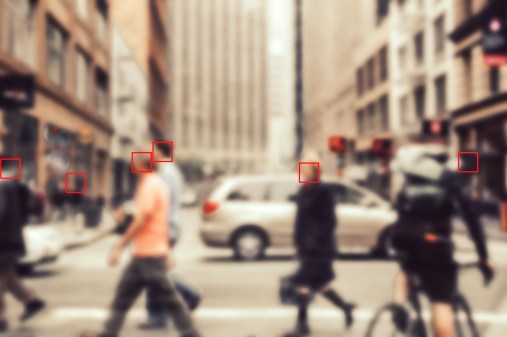In her new book, Danielle Keats Citron makes the case for the ‘right to intimate privacy’

Danielle Keats Citron’s new book, “The Fight for Privacy: Protecting Dignity, Identity and Love in Our Digital Age,” came out in September and explores how the rise of mass data collection exploits the most intimate details of everyone’s private lives. In it, Citron discusses her work over more than a decade in the U.S. and abroad to help shape policies that protect individuals from digital crimes such as the non-consensual sharing of intimate imagery. Citron, a professor of law at the University of Virginia and 2019 MacArthur Fellow, concludes that societies need to consider “intimate privacy” as a civil right protected under the law. The following interview has been edited for clarity and length.
What is intimate privacy?
Intimate privacy is our access to and information about our bodies, our health, our innermost thoughts, which of course we document all day long without realizing it, browsing and searching and sending texts and emails. It’s information about our sexual orientation, sex and gender or sexual activities, and our closest relationships. There are lots of different types of privacy and as we think about foundational privacy values — that is privacy that is indispensable to human flourishing — and that is intimate privacy. You could contrast it with the privacy of our bank accounts, which is really important and protects us from theft, but it isn’t all-consuming. It isn’t something that we would say without it we can’t live a dignified and fulfilled life. Intimate privacy is the key to citizenship, love and flourishing.
Your book talks a lot about reproductive and sexual health data, which has been a large source of discussion and concern since the Dobbs decision. Did the Dobbs decision change the book at all?
The book was set in stone by the time the leak came out in early May. All the ways that we track our reproductive health are covered by intimate information, which is at the heart of my book. But the notion that the Supreme Court would in fact tear down the edifice of Roe — I still didn’t want to believe it by the time the book was sent to my publisher. I think none of us did.
When I say [in the book] that anyone holding our intimate information is the guardian of that information — and that there are many things you shouldn’t collect and never sell — that holds true. I think we’re still grappling with the fact that law enforcement is purchasing information from data brokers, which is going to include [reproductive data]. They shouldn’t be buying that. So, I’m with Sen. Ron Wyden and his Fourth Amendment Is Not For Sale Act.
But the rubber hits the road when we have democratic and premature judicial approval. And in many ways, that’s why we need a federal right, a civil right, to intimate privacy. And we do need a civil right to reproductive freedom.
You draw from the legal framework for civil rights in the idea of establishing a right to intimate privacy. A lot of the time when we talk about privacy, we frame it more as a matter of civil liberty. Why is the civil rights framework important?
Because it’s both, right? Privacy is the precondition to expression. We’re not going to express ourselves, especially in digital communications and other protected spaces, without privacy. So, speech and privacy are inextricable, and intimate privacy and expression are inextricable. And so, in some sense, [privacy] is an important civil liberty in that it demands government to be hands-off. So it is a civil liberty, but at the same time, we need to understand [privacy] as a civil right and civil right in a capacious way.
Modern civil rights law says civil rights are protections from discrimination. Discrimination meaning setbacks to your interests because you’re a member of a protected class. And I’m with them. The book is animated by how intimate privacy violations often cost the most vulnerable — women, non-whites and LGBTQ individuals.
When people say privacy is a civil right, what they’re referring to, is protection from discrimination. And I’m saying no, hold up. Let’s back up. It’s broader, right? It’s a departure from the narrative of civil rights as exclusively about protecting vulnerable groups from discrimination and expands it and says a civil right is like you and I enjoy it. A white dude enjoys it. Like we all enjoy it. But it has special protections for us as women, as black women, as trans women, as LGBTQ, or more broadly, as individuals as non-white — often on an intersectional basis.

In the book, you advocate for reform of Section 230 of the Communications Decency Act, which provides immunity from liability for internet platforms for what users post. Public debate over the law has been framed as largely a matter of censorship. Why is it important to a right to privacy?
Section 230 is often credited with the reason why we have the internet that we have today. And I don’t criticize the important role that it played. That role of keeping up without a threat of liability has been really important for why we have the diversity of content and social media interactions that we have.
But at the same time, it has enabled with a free legal pass sites that are perpetrators, sites that encourage, and solicit, and that deliberately keep up privacy invasions — especially intimate privacy invasions. There are 9,500 sites, mostly hosted in the United States, whose whole raison d’etre, their businesses, is intimate privacy violations.
The idea that Wyden and [co-author former Rep. Chris Cox, R-Calif.] had back in 1996, is we want to reward platforms — interactive computer services — for helping clean up the internet. Those are their words. And we want to provide a legal immunity that will incentivize cleaning up the internet.
We’ve strayed a far way away from there. We’re not only incentivizing and providing a legal immunity for sites that are helping clean up the internet … we’re also unfortunately providing broad protection for privacy violators. And so, Section 230 is a privacy problem, right? It is making it really difficult if impossible for privacy victims, victims of intimate privacy violations, to get any justice. Because they can’t sue their perpetrator, because they have no deep pockets, or they can’t find them. And at the same time, they can’t sue the sites that are enabling and profiting from the abuse because of Section 230.
Your book talks about the proliferation of deepfakes and how the technology has been weaponized to violate the privacy of mostly women. Are there any other emerging technologies that you think could pose similar threats in the future?
I would hope that what I convey in this book is that intimate privacy violations are a moving target, and that’s why we can’t deal with them in a silo. Like video voyeurism, upskirt photos, down blouse [photos], deepfakes, digitally manipulated imagery — they are growing and unfortunately, violators are pretty creative.
And so, today’s problem, which is pervasive, is deepfake imagery. And really where it’s stayed and growing is deepfake sex videos. We have all these worries and I do — Bobby Chesney and I have written a lot about deepfakes and challenges for national security, for democracy, for kind of defamation of important institutional actors. But where we have seen real problems on the ground is there are over 60,000 deepfakes online and 95% of them are deepfakes sex videos, and basically all of them are of women’s faces and girls’ faces being morphed into porn.
I think we need to just understand the problem around intimate privacy, rather than specific manifestations of its violation. And as long as we have the right concept, then we can tackle new problems.



